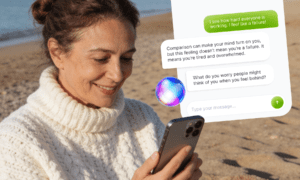The recent PR disaster of many messenger apps has left users of these apps wondering if their messages are really secure. The fight for privacy and the protection of human rights, though, is more important than one company’s reputation. Even though the world is developing rapidly with new technology, it is important to consider the consequences of what this development may bring.
Pavel Durov, Telegram’s founder, declared in an article on the Russian-language social network VK that “using WhatsApp is dangerous”. “There are reports that WhatsApp is deliberately inserting vulnerabilities into its product, as part of a US government security strategy.” Citing the German wiretapping scandal and the potential for a similar privacy fail by the United States, Durov said that the private app had become “the tool of choice for many malicious actions.”
Why it’s important for human rights
Without reliable and free messengers, many people will be left without the ability to communicate and organize. Even the most basic form of communication can have an impact on human rights. What’s more, the lack of a space for people to exchange ideas safely will suppress creativity and entrepreneurship. If we want people to feel secure and to have a free expression of ideas, then companies and governments need to do better.
Digital privacy is incredibly important. From political oppression, to how raising the awareness of basic digital privacy largely benefits those who are polically active. It should be considered just as important as physical, individual privacy, as access to information is an important right.
To illustrate, if an activist is attacked because of what they are seen as publishing or saying on social media, their advocacy for human rights is lost. It is important to protect human rights on the internet. Considering the rise of cybercrimes, many people are skeptical of using messengers to communicate. But human rights make up the basic right to a private life. Without private lives, there is no opportunity for democracy.
Yellow is partly, red completely oppressed and censored. A map from 2018
Free and open Internet are a platform for freedom, democracy, and economic growth. There are few safeguards more vital than privacy and encryption. Even outside of the digital sphere, encryption can ensure the integrity of our health records, property records, and banking information.
Who needs it
Human rights defenders protect democracy by documenting violations and informing the press. They also use privacy tools to communicate securely with other human rights defenders and their own sources to protect themselves from large-scale surveillance. For this reason, many have called the development of strong encryption technologies “essential for a free and open Internet.”
Communication is at the very foundation of virtually every other human right. If your voice can’t be heard, if everything you say is censored, you can be sure that every bit of information you have has been censored as well. Your entire world view has been censored.
You have no agency because you are never heard. To understand the importance and potential of secure messaging, it is prerequisite to understand the importance of communication in general to human rights. Too often, people are censored or even silenced by oppressive regimes.
The case for “Fake News”
Those who are censored often have no other choice but to rely on written communication. We aren’t just talking about some far away place anyone may point their fingers to. This happens everywhere, albeit to varying degrees.
Hate him or love him, but when Trump coined the term “Fake News”, he didn’t bring light to something entirely new. It has been notoriously known how media agencies are heavily influenced by political agenda and that a plethora of information from articles and content pieces were losely checked and often downright misinformation. The power of modern messaging applications is that they work even when they are not connected to the Internet. They work when your phone isn’t a brand new variety.
What makes a good messaging App
They don’t have a new scandal every other month about how information was leaked and they are certainly not directly connected to companies such as Facebook. That means, even when a regime – known to be oppressive or not – has the intention to overhear your conversation, censor it, or even downright block the Internet, they cannot just ask to access your messaging apps.
It’s when the messaging apps are designed in a way where even the company behind the app doesn’t have access to the information that encryption can be seen as reliable. There is no need for them to know if what you said to your friend was “Hi, I’m doing xy today” or a random string of letters and numbers, i.e. an encrypted mash.
UniMe
One such app is UniMe. The messenger app was created to ensure the privacy rights of its users. It uses state of the art end-to-end encryption to ensure secure communications. What’s different about Uni is that they have built their security protocols from the ground up. No infamous data mishandler big-corp such as Facebook was at any point involved with its creation. What is more, the app does not track its users and is not a part of the “big world” of connected objects – as is the case with WhatsApp. The user’s data and messages isn’t stored in a segregated database, with “special security protocols”, as other apps claim, but instantly encrypted and deleted.



































